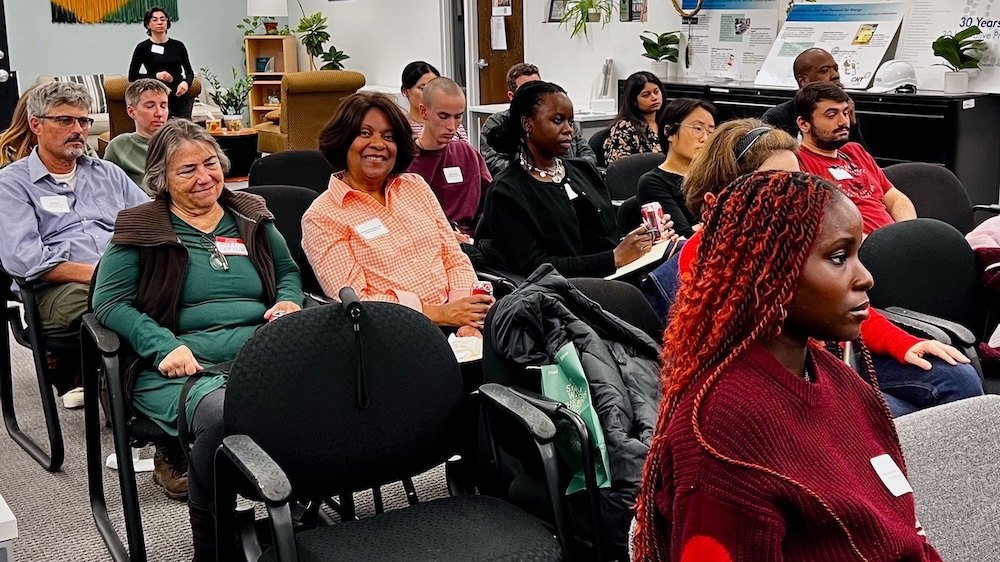
Our housing as infrastructure conversation in mid-November brought together attorneys and advocates to talk about the intersection of housing justice and climate justice.
Panelists Meleah Geertsma from Alliance for the Great Lakes and Kennedy Moehrs Gardner from Equity Legal Services shared experiences working with the people of Centreville, Illinois (now Cahokia Heights, IL) in southern Illinois, and highlighted parallels to flooding and sanitation issues in Northeast Illinois. They along with Sheila Sutton of Chicago Area Fair Housing Alliance and our own Cyatharine Alias as moderator discussed the problem from multiple angles.
The Central Illinois town is in many ways ground zero for any conversation on housing and flooding as described by a website residents created, Flooded and Forgotten (and profiled recently on Science Friday ). It is a mostly older, Black community who have been dealing with raw sewage inundation and regular flooding for decades. “For Centreville residents, this has always been a racial justice issue before it was a climate issue” Gardner shared.
One consensus on the panel: local governments are supposed to invest in and build the stormwater and wastewater infrastructure, but when your home floods, the system largely puts the burden on you. Those burdens fall hard on people in Black and Brown communities.
Decades of discriminatory decisions and land-use policies forced many to locate in areas that experience chronic stormwater and wastewater crises. Simultaneously, many faced a lack of investment in housing from the private market. We see infrastructure, as a public good and housing as a private market issue, but the site, the physical location of the impacts of flooding and water issues is people’s homes.
In particular, in many communities of color, a lack of municipal investment in their stormwater and wastewater infrastructure, has compounded the legacy impacts of historical redlining in terms of home lending and other forms of housing discrimination. As Geertsma pointed out, redlining practices impacted home lending and also harmed provision of services like investments in water infrastructure.
Sutton pointed out that historically in many communities, BIPOC communities were restricted in terms of where they could purchase homes, and in some cases, the only homes available for purchase were in areas that were “less desirable,”Our current housing stock crisis today mirrors these realities for cash-strapped buyers, she noted.
These aligned historical trajectories have meant, for many Black communities in particular, the American Dream of achieving some form of wealth to pass on to the next generation through homeownership, never had the proper infrastructure, both metaphorically and literally to succeed. Sutton noted that when one looks at maps that show high flood impacts in urban areas, and overlays those with redlining maps, and then sacrifice zones, there is often a great deal of overlap in these maps.
Our current climate challenges will continue to exacerbate the impacts of these historical inequities as insurance companies and other market actors continue to address climate change issues—like more frequent flooding—by pulling out of markets or refusing to cover frequent flooding events.
Homeowners and housing developers will continue to struggle to provide housing under these conditions, as noted in an October 2023 article by the New York Times. How we engage our wastewater and stormwater infrastructure and municipalities find ways to address both the current crisis, but also mitigate the past harms creating current real impacts is what we have to join together to advocate together for.
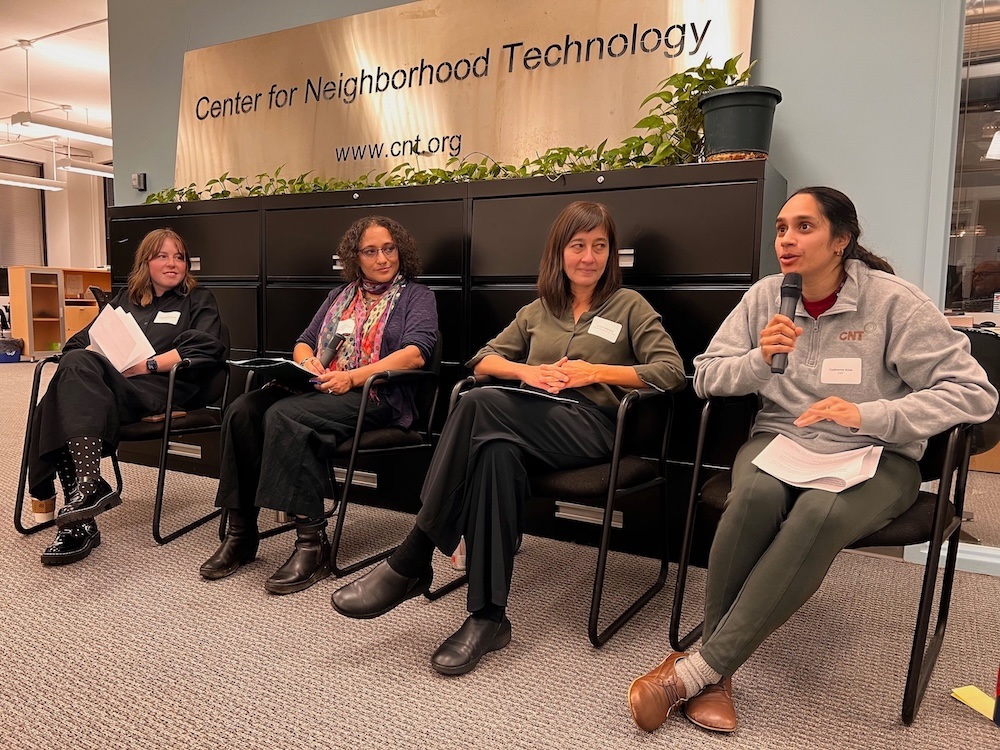
Relevant laws and policies, like flooding-related buyout programs under the Federal Emergency Management Agency, (FEMA), do not include a requirement to “make whole” homeowners, and do not provide support to address damage from chronic flooding that occurred prior to a federally declared disaster. Where can residents who have experienced chronic flooding and sanitation failures afford to move to now, given low property valuations after decades of disinvested infrastructure leading to home damage? Should they have to move and once more lose the community they have formed?
Additionally, Fair Housing Laws and Laws like the Community Reinvestment Act, targeted at remedying the ongoing impacts and continued bias in our housing markets, do not address in any meaningful way, environmental impacts that happen in people’s homes, that often come from legacies of localized infrastructural investment neglect.
Centreville residents have turned to organizing and advocacy as well as legal solutions to address the challenges in their community. Sutton and the other panelists discussed how community reinvestment organizing has been key to housing issues, as well as the possibilities and limitations of the Clean Water Act.
What’s happening in Centreville and neighborhoods on Chicago’s South and West Sides, as well as the South Suburbs and Northwest Indiana, is extreme but not necessarily different from problems that flooding poses to homeowners and tenants in similar communities, panelists said.
From the audience, RainReady community leader and resident of Chicago’s Southside Chatham neighborhood Cheryl Watson praised the work being done in Centreville. She’s still advocating for solutions in Chatham, she said.
Watson shared her story – describing (as she has in testimony at Chicago City Council in October 2023), “about seven decades of persistent flooding challenges exacerbated by heavy rainfall in Chicago's Chatham area.” At our meeting, she shared how her parents maneuvering around restrictions on where in Chicago Black families could buy homes in the mid 20th century. She described inheriting her beloved family home and how it would always flood in rainstorms even when she was a child.
She continues to invest in her own home’s drainage systems as well as working with neighbors through groups such as Greater Chatham Initiative. As much as has been done, she said more advocacy is still needed to solve her community’s flooding problem.
Her story added an important dimension to the panel and underlined the similar challenges across different places we face when designing and investing in infrastructure to protect homes from flooding.
“There’s a tendency to look at each problem individually, but what you see when you go to places is variations on the exact same problem,” Geertsma said. “Local problems are the key to understanding how we have to fix everything.”


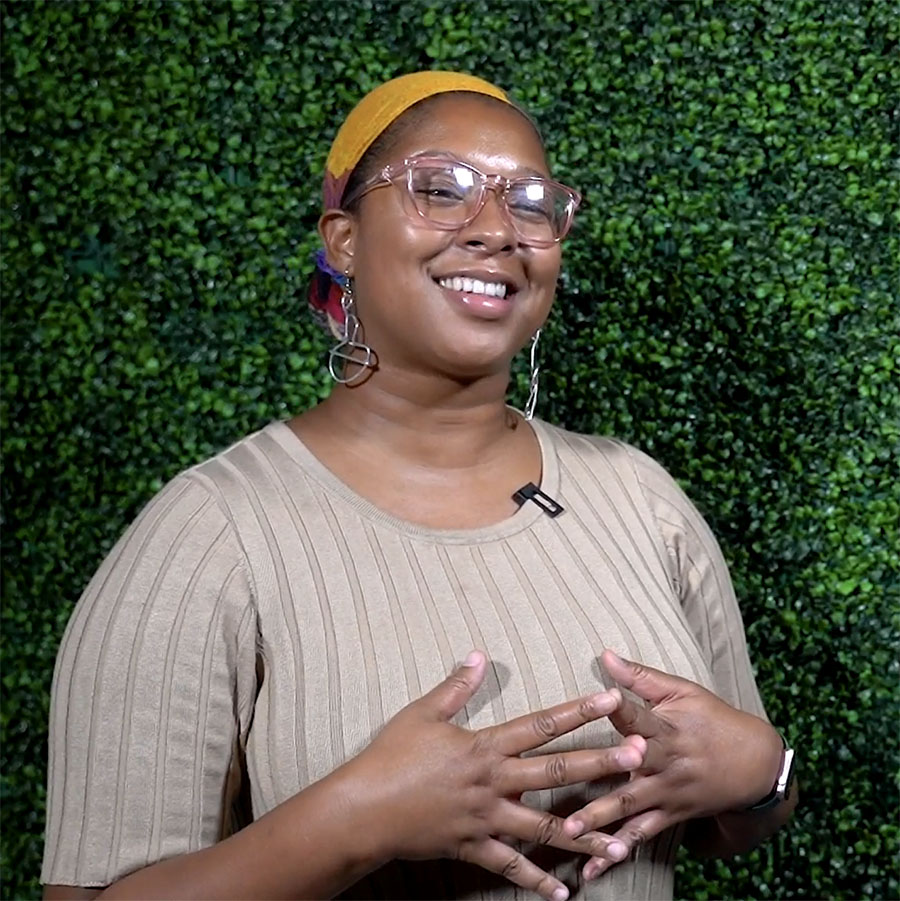
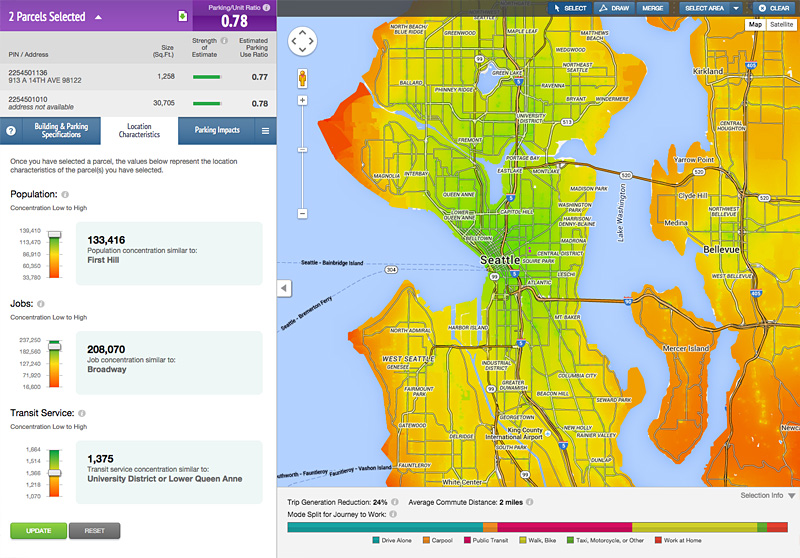
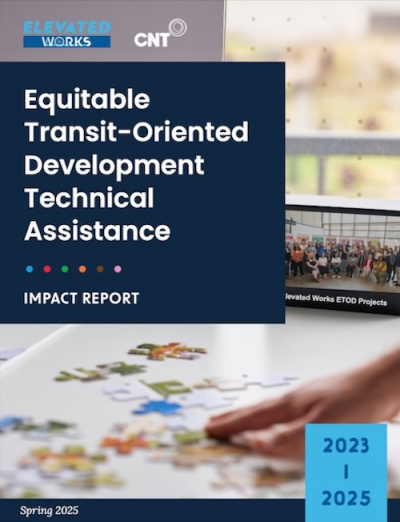
 Strengthening Transit Through Community Partnerships
Strengthening Transit Through Community Partnerships